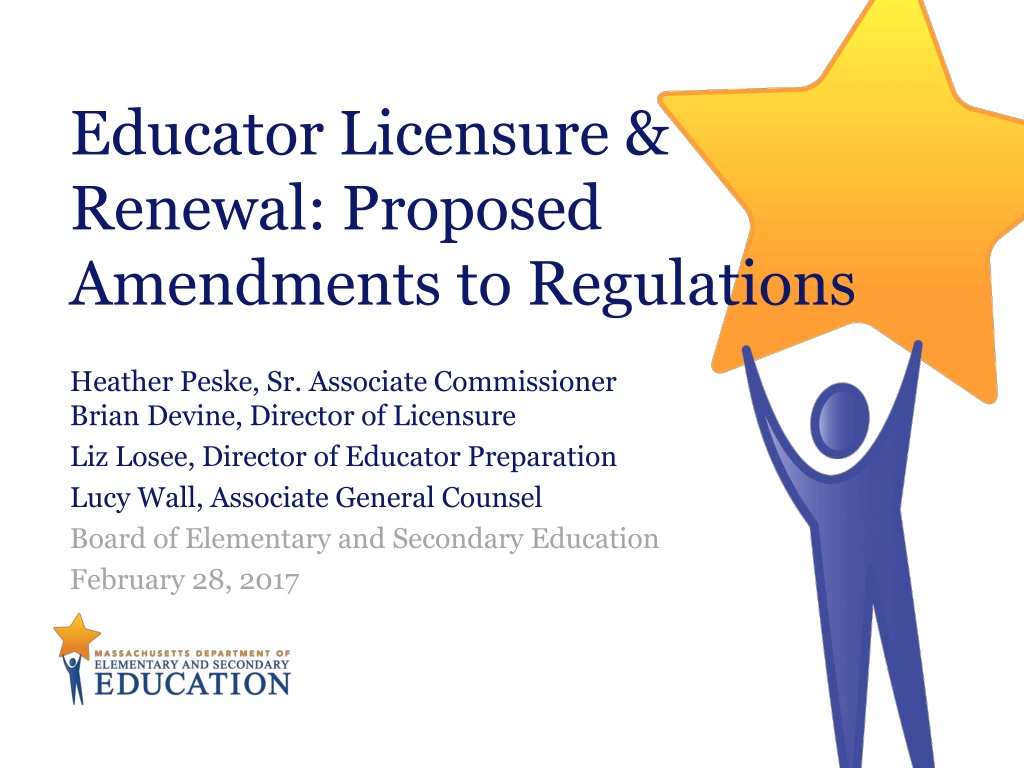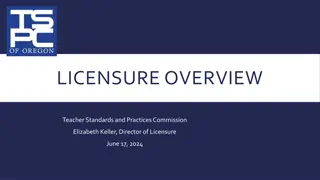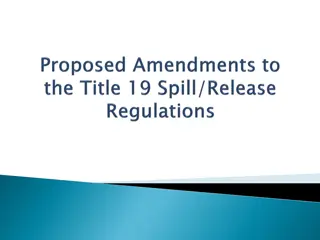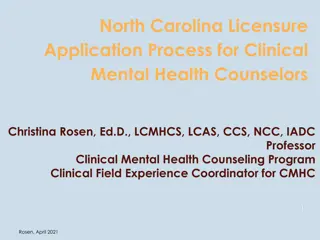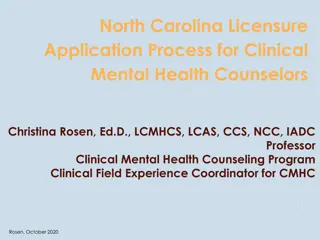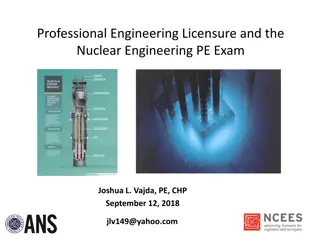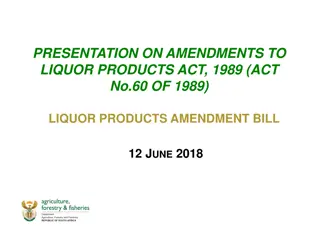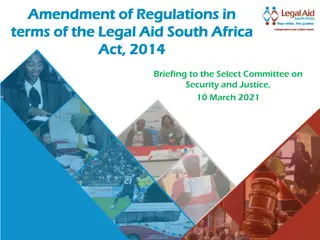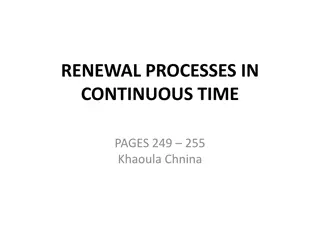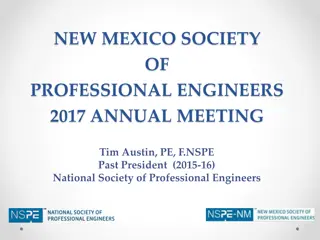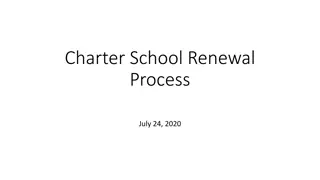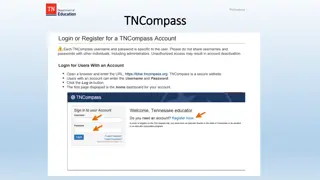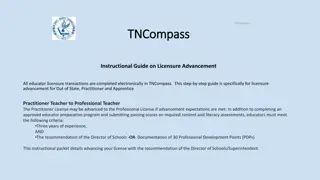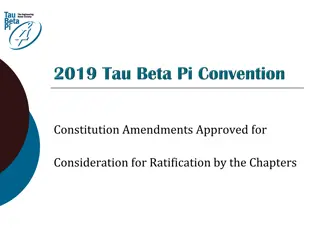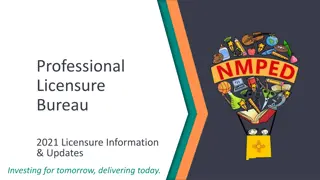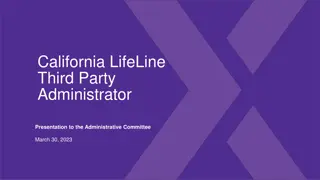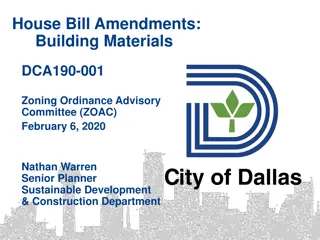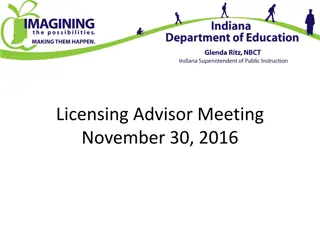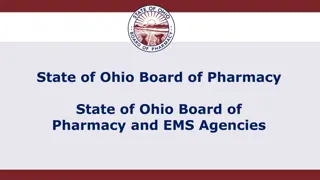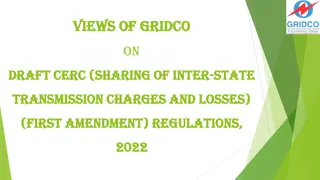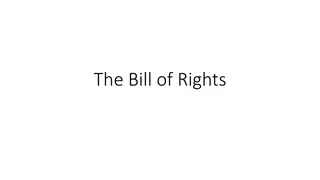Proposed Amendments to Educator Licensure and Renewal Regulations
The proposed amendments aim to streamline licensure regulations, strengthen requirements, and reduce unnecessary burden while maintaining high standards. Examples include changes in reciprocity, flexibility in earning PDPs, closing loopholes, and reducing/eliminating regulatory burden. Additionally, there are amendments for Autism Endorsement eligibility. These proposals have undergone thorough processes involving working groups, public surveys, and BESE discussions to ensure alignment with the needs of students, schools, and educators.
Download Presentation

Please find below an Image/Link to download the presentation.
The content on the website is provided AS IS for your information and personal use only. It may not be sold, licensed, or shared on other websites without obtaining consent from the author. Download presentation by click this link. If you encounter any issues during the download, it is possible that the publisher has removed the file from their server.
E N D
Presentation Transcript
Educator Licensure & Renewal: Proposed Amendments to Regulations Heather Peske, Sr. Associate Commissioner Brian Devine, Director of Licensure Liz Losee, Director of Educator Preparation Lucy Wall, Associate General Counsel Board of Elementary and Secondary Education February 28, 2017
Purpose & Process of the Proposals Purpose Streamline licensure regulations & create efficiencies for processing Strengthen requirements (more logical, better aligned to needs of students, schools and educators). Reduce unnecessary burden while maintaining high standards. Process Working Group (Spring 2016) 17 members. Public Survey (Fall 2016) 900 responses BESE Discussion (December 2016) 2 Massachusetts Department of Elementary & Secondary Education
Streamlining Examples: Reciprocity for out-of-state educators: Temporary license change to one year of experience vs. one calendar year & experience does not have to be under an Initial license Initial license need to have equivalent license, but removing the three years experience component Flexibility in earning PDPs provide educators and districts the ability to determine where to focus PD by reducing the specified PDPs from 120 down to 60. 3 Massachusetts Department of Elementary & Secondary Education
Closing Loopholes Examples: Allow a maximum of five years of employment under a Preliminary license. Require the Performance Assessment for Leaders (PAL) for those out-of-state candidates with one year or less experience. 4 Massachusetts Department of Elementary & Secondary Education
Reduce/Eliminate Regulatory Burden Examples: Move the subject matter knowledge requirements for teacher candidates into guidelines, rather than regs with a process for public input. Condense some grade levels: Principal/Assistant Principal from PreK-6, 5-8 and 8- 12 into PreK-8 and 5-12 English, history & Political Science/Political Philosophy from 5-8 & 8-12 into 5-12 5 Massachusetts Department of Elementary & Secondary Education
Autism Endorsement Amendments In 2015 when the endorsement was created, the Board asked ESE staff to investigate expanding eligibility to general educators. Input from the field supports expanding to eligibility to all educators. Proposal: Require at least 3 graduate credits related to special education or possess of one of the existing prerequisite licenses. 6 Massachusetts Department of Elementary & Secondary Education
Instructional Technology & Digital Literacy/Computer Science Based on feedback received, maintain the Instructional Technology license but revert back to a specialist teacher license. Instructional Technology Specialist license - ESE will convene a workgroup of stakeholders to draft subject matter knowledge requirements. Develop a Digital Literacy and Computer Science 5-12 license. Digital Literacy and Computer Science 5-12 license draft subject matter knowledge requirements created. 7 Massachusetts Department of Elementary & Secondary Education
Clarifying Process for Licensure Sanctions Indicate that the Commissioner may issue a sanction less than that of a revocation or suspension for example, a reprimand. Clarify the conditions which may constitute a sanction for example, if a licensee compromises student safety or the integrity of the student-educator relationship. Remove investigatory subpoena provision to reduce confusion about the obligations of school districts to provide relevant documents in investigations of misconduct, without a need for a subpoena. Make provision regarding notice of license actions consistent with ESE s current practices of providing notification of discipline to various entities for example, ESE routinely provides notification to heads of charter schools. 8 Massachusetts Department of Elementary & Secondary Education
